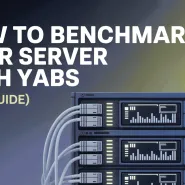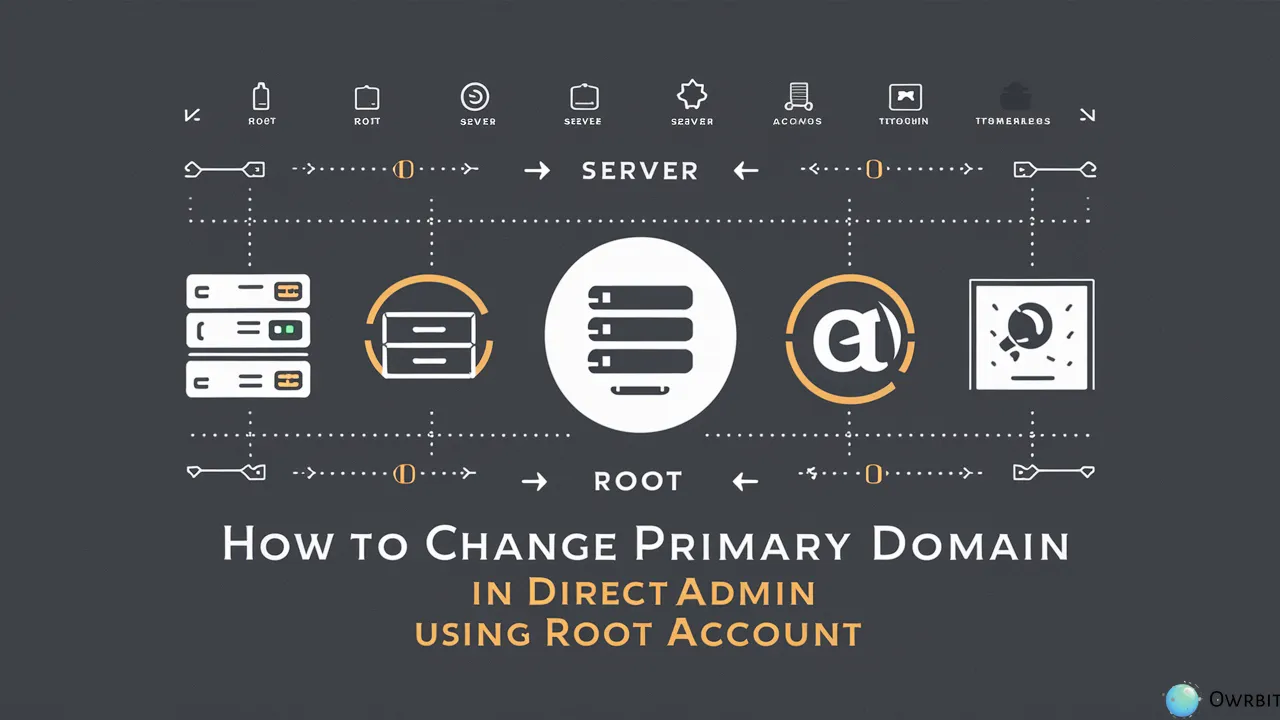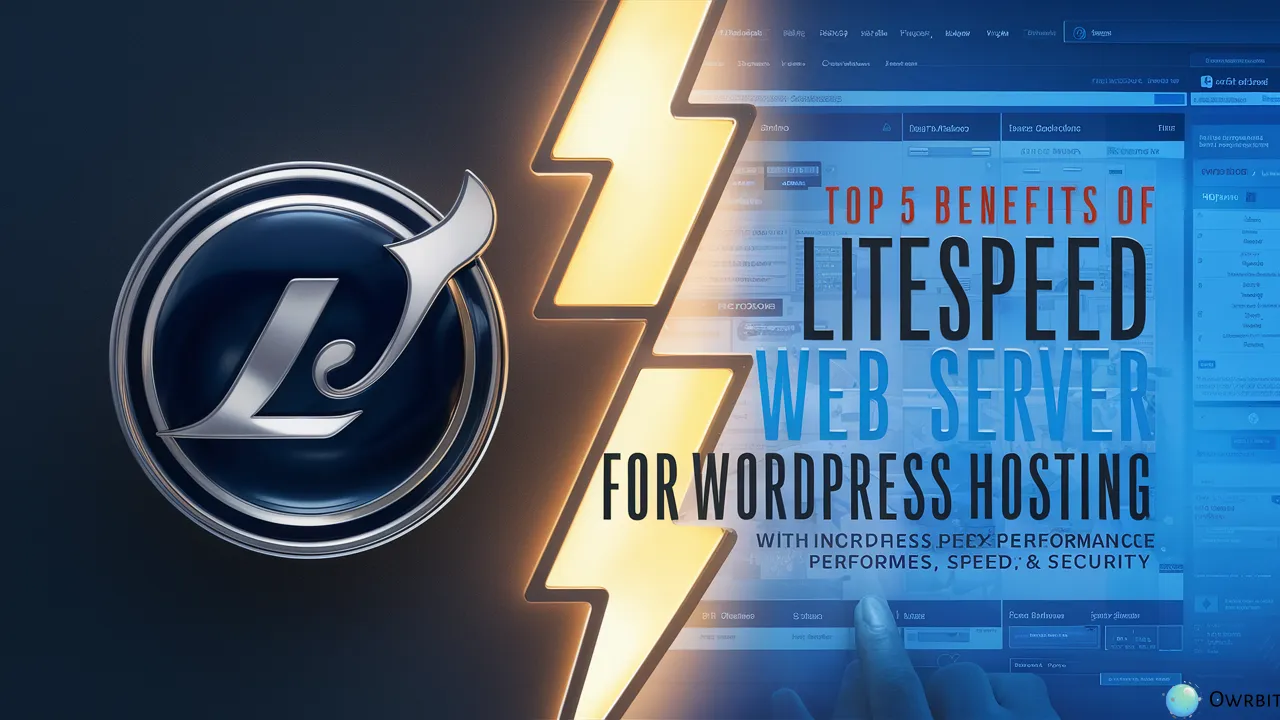Choosing the right web hosting service can make a big difference to your website and business. In 2025, the discussion around VPS vs Shared Hosting is still an important one for website owners. Both VPS vs Shared Hosting are popular options, but they suit different needs and budgets. Understanding the differences between VPS vs Shared Hosting will help you pick the best choice for your situation.
Shared Hosting is great for beginners or small businesses because it’s affordable and easy to set up. With Shared Hosting, many websites share the same server, which keeps the costs low. However, this shared setup may affect the speed, security, and resources of your website as it grows.
VPS Hosting, which stands for Virtual Private Server, gives your website more resources and control compared to Shared Hosting. It’s a step up from Shared Hosting without the high costs of dedicated servers. VPS Hosting is ideal for businesses that want better performance and security without spending too much.
When deciding between VPS vs Shared Hosting, think about factors like scalability, speed, cost, and security. VPS vs Shared Hosting both have advantages and disadvantages, so consider what your website needs. Whether you’re just starting out or have experience managing websites, knowing the difference between VPS vs Shared Hosting will help you create a strong online presence.

Introduction to Web Hosting :
Let’s dive into the basics of web hosting. Web hosting is essentially the service that allows individuals or businesses to store their website files on a server and make their websites accessible on the internet. It’s like renting space on the web for your site to live and thrive.

When someone types in your website address, the hosting server sends the site’s content to their browser. Hosting services come in various types, and they’re tailored to different needs. For example:
- Shared Hosting: Ideal for beginners, small businesses, or personal websites. Multiple websites share server resources, making it affordable but potentially limiting performance if traffic grows.
- VPS Hosting: A step up from Shared Hosting, providing dedicated resources in a virtual environment. It offers more control, better performance, and security, suitable for growing businesses.
- Dedicated Hosting: You get your own server entirely. This is for large-scale websites that need maximum resources and control.
- Cloud Hosting: Websites are hosted across multiple servers in the cloud, providing scalability and reliability.
- WordPress Hosting: Specifically optimized for WordPress websites, with features that cater to WordPress users.
Each type of hosting caters to specific needs, budgets, and levels of technical expertise. Choosing the right hosting depends on your website’s purpose, expected traffic, and future growth. It’s the foundation for any successful online presence!
What is Shared Hosting?
Shared Hosting is one of the most beginner-friendly and cost-effective types of web hosting available. It’s like sharing an apartment with roommates where the rent is split—multiple websites share the same server and its resources (like bandwidth, storage, and memory). This makes it affordable and easy to manage.

Here are its key features:
- Affordable: Shared Hosting is typically the cheapest option, making it ideal for personal projects, small businesses, or startups.
- Ease of Use: Hosting providers usually offer tools and support to make it simple, even for people without technical expertise.
- Limited Resources: Since server resources are shared among many websites, heavy traffic or activities on one site can affect the performance of others.
- Suitable for Small Websites: It’s perfect for websites that don’t need high-speed performance or large storage capacity, like blogs or simple company sites.
It’s a great starting point, but as your website grows and needs more power, you might consider upgrading to VPS Hosting or other types of hosting.
Who Should Choose Shared Hosting?
- Beginners or First-Time Website Owners
- Shared Hosting is perfect for those new to website creation, offering ease of use and simple setup.
- Personal Blogs or Portfolios
- For websites with low traffic, such as blogs, portfolios, or resumes, Shared Hosting provides an affordable solution.
- Small Businesses
- Ideal for startups and small companies with basic informational websites that don’t demand heavy resources.
- Budget-Conscious Users
- Those seeking cost-effective hosting will benefit from the affordability of Shared Hosting.
- Websites with Low Traffic
- Perfect for sites that don’t expect a lot of visitors or resource-heavy activity.
- Simplicity Seekers
- Shared Hosting is managed by the provider, eliminating the need for technical expertise and server maintenance.
By understanding these points, you can see why Shared Hosting is a great starting point. If your website grows, you can easily upgrade to options like VPS Hosting for better performance and scalability.
Pros and Cons of Shared Hosting :
Here’s a breakdown of the pros and cons of Shared Hosting:

Pros of Shared Hosting :
- Affordability: Shared Hosting is one of the cheapest options, making it ideal for small businesses, bloggers, or anyone on a budget.
- Ease of Use: Hosting providers usually include user-friendly tools, such as control panels like cPanel, to simplify website management.
- Beginner-Friendly: Great for people with little or no technical skills, as maintenance is handled by the provider.
- Multiple Features: Many plans include features like website builders, email accounts, and basic security.
- Scalable Options: If your website grows, you can upgrade to higher-tier plans or move to VPS Hosting later.
Cons of Shared Hosting :
- Limited Resources: Since server resources are shared, heavy usage by one website can slow down others.
- Lower Performance: Sites may face slower loading times and reduced stability, especially during traffic surges.
- Security Risks: Sharing the server means potential vulnerabilities if one website is attacked.
- Not Ideal for Large Websites: If your website grows beyond basic needs, the limitations of Shared Hosting can restrict its potential.
- Lack of Customization: You don’t have full control over the server environment.
Shared Hosting is a great starting point for small-scale websites, but it has limitations. As your website evolves, you might find VPS Hosting or other options more suitable.
What is VPS Hosting?
VPS Hosting, which stands for Virtual Private Server Hosting, is a type of web hosting where your website gets its own dedicated portion of a server’s resources in a virtualized environment. It’s like renting your own private suite in a large building, compared to sharing a common area with everyone.

Here’s what makes VPS Hosting special:
- Dedicated Resources: Unlike Shared Hosting, your website gets its own allocated CPU, RAM, and storage, leading to better performance.
- Customization: VPS Hosting gives you more control over your server settings. You can install specific software, configure settings, and fine-tune things to your needs.
- Scalability: It’s flexible—if your website grows, you can increase resources without needing to switch to a different hosting type.
- Improved Security: Since your resources are isolated from others, your website is less vulnerable to attacks or issues caused by other sites.
Who Should Choose VPS Hosting?
- Growing Websites
- VPS Hosting is perfect for websites experiencing steady growth in traffic, as it offers dedicated resources and scalability.
- Small to Medium Businesses
- For businesses that need better performance, security, and control than Shared Hosting can offer, VPS Hosting is an excellent choice.
- E-commerce Websites
- Online stores can benefit from the enhanced speed, reliability, and security of VPS Hosting, which are critical for handling customer transactions.
- Tech-Savvy Users
- Individuals or developers who need greater control over server settings will find VPS Hosting ideal for customization and advanced configurations.
- Websites Requiring Enhanced Security
- VPS Hosting is a great option for sites that handle sensitive data, as it isolates your resources from others for better security.
- Projects Needing Custom Software
- VPS Hosting allows users to install custom software and optimize server environments, making it ideal for specific or complex projects.
- Resource-Intensive Websites
- Websites with demanding resource needs, such as those hosting multimedia content or large databases, are better served by VPS Hosting.
- Users Upgrading from Shared Hosting
- If your website has outgrown the limitations of Shared Hosting, VPS Hosting is the next step for improved performance and scalability.
By choosing VPS Hosting, you can enjoy more control, flexibility, and power for your growing website.
Pros and Cons of VPS Hosting :
Here are the pros and cons of VPS Hosting, so you can decide if it’s the right choice for your website:
Pros of VPS Hosting :
- Dedicated Resources: You get your own portion of the server’s CPU, RAM, and storage, ensuring consistent and better performance.
- Improved Performance: Since resources aren’t shared with others, your website runs faster and handles more traffic seamlessly.
- Greater Control: VPS Hosting lets you customize server settings, install software, and configure your environment to suit your needs.
- Scalability: As your website grows, it’s easy to increase resources like memory or processing power without switching hosting types.
- Better Security: Isolation from other users on the server reduces the risk of vulnerabilities or breaches caused by others.
Cons of VPS Hosting :
- Higher Cost: VPS Hosting is more expensive than Shared Hosting, though still more affordable than Dedicated Hosting.
- Technical Knowledge Needed: Managing a VPS requires some technical expertise, especially for customization and troubleshooting.
- Limited Resources Compared to Dedicated Hosting: While VPS offers dedicated resources, it’s still a shared physical server, so it doesn’t match the capacity of a dedicated server.
- Possible Overhead: If not optimized, managing a VPS server could take up your time, especially without technical support.
VPS Hosting is an excellent choice for websites that need more power, flexibility, and security than Shared Hosting can offer, while still being more budget-friendly than a fully Dedicated Hosting setup.
Key Differences Between VPS vs Shared Hosting :
Here’s a comparison of the key differences between VPS vs Shared Hosting :

- 1. Resource Allocation :
- Shared Hosting: Multiple websites share the same server resources (CPU, RAM, and storage). This can lead to slower performance during traffic surges.
- VPS Hosting: Resources are allocated specifically for your website in a virtual server environment. This ensures consistent performance and stability.
- 2. Performance :
- Shared Hosting and VPS: While Shared Hosting is suitable for small sites with limited traffic, VPS Hosting can handle higher traffic loads and offers faster speeds due to dedicated resources.
- VPS vs Shared Hosting: VPS clearly outperforms Shared Hosting in speed and reliability.
- 3. Cost :
- Shared Hosting: The cheaper option, ideal for startups, hobby sites, or those on tight budgets.
- VPS Hosting: Costs more than Shared Hosting but offers great value for growing websites with higher demands.
- 4. Security :
- Shared Hosting: Sharing the server with other websites can make it vulnerable to attacks if one site is compromised.
- VPS Hosting: More secure because resources are isolated, reducing risks from other users.
- 5. Control and Customization :
- Shared Hosting: Limited control over server settings. Customization isn’t usually possible.
- VPS Hosting: Offers greater control to configure server settings and install software, catering to specific needs.
- 6. Scalability :
- Shared Hosting and VPS: Shared Hosting is less scalable, while VPS Hosting allows you to upgrade resources as your website grows.
- VPS vs Shared Hosting: VPS Hosting stands out for scalability, making it ideal for expanding businesses.
- 7. Technical Expertise :
- Shared Hosting: No technical knowledge required; providers handle maintenance.
- VPS Hosting: Requires some technical expertise to manage and customize the server effectively.
By comparing VPS vs Shared Hosting, it’s clear that both have their strengths. VPS vs Shared Hosting are suited for different needs, so the right choice depends on your website’s size, traffic, and goals.
Performance Factors: Speed, Uptime, and Reliability
When it comes to website performance, factors like speed, uptime, and reliability are super important. Let’s look at how these compare in VPS vs Shared Hosting in simple terms.

Speed
- In Shared Hosting and VPS, the speed can differ a lot.
- Shared Hosting shares server resources with multiple websites. If one website uses a lot of resources, your website might slow down.
- In VPS Hosting, your website gets its own dedicated resources. This means your site runs faster and stays smooth, even during high traffic.
- So, when looking at VPS vs Shared Hosting, VPS clearly offers better speed.
Uptime
- Uptime means how often your website stays live and accessible without issues.
- In Shared Hosting, other websites sharing your server can sometimes cause downtime if they experience problems.
- With VPS Hosting, your website is isolated from others, so uptime is more reliable. This gives VPS Hosting an edge in the VPS vs Shared Hosting comparison.
Reliability
- Shared Hosting and VPS differ in reliability too.
- Shared Hosting may face performance drops due to shared resources, especially if another site on the server experiences heavy traffic.
- VPS Hosting is more reliable because it isolates your website from others and ensures consistent performance.
- Between VPS vs Shared Hosting, VPS comes out as the more reliable choice.
In short, if you’re running a smaller website with minimal traffic, Shared Hosting might be enough for you. But if you need better speed, uptime, and reliability, VPS Hosting is a stronger option. Understanding these differences between VPS vs Shared Hosting will help you make the right choice based on your needs.
Security Considerations for VPS vs Shared Hosting :
Let’s talk about the security differences between VPS vs Shared Hosting:

Shared Hosting :
- Shared Environment: With Shared Hosting, your website shares the server with many other websites. If one of those websites is hacked or experiences issues, it can put your site at risk.
- Limited Isolation: In Shared Hosting, security isn’t completely isolated, meaning threats from other users can impact your site.
- Basic Security Features: Hosting providers usually offer basic security measures for Shared Hosting, but you rely on their settings and have little control over advanced security.
- Good for Small Websites: For sites with minimal data or simple setups, Shared Hosting security can be sufficient, but it’s not ideal for sensitive information.
VPS Hosting :
- Dedicated Resources: In VPS Hosting, your website has its own virtual space on the server. This isolation enhances security, keeping your site safe from issues caused by other users.
- Greater Control: VPS Hosting allows you to customize security settings to meet your needs. You can install firewalls, configure software, and take proactive security measures.
- Protection Against Other Websites: Since your resources are separated in VPS Hosting, the risks from other users on the server are greatly reduced.
- Ideal for Sensitive Data: If your website handles personal or financial information, VPS Hosting offers better protection compared to Shared Hosting and VPS environments.
- Advanced Security Features: VPS Hosting is perfect for businesses that want strong security features without the high costs of dedicated servers.
When comparing VPS vs Shared Hosting, VPS is the safer option because it isolates your website and gives you more control over security measures. VPS vs Shared Hosting both offer different levels of protection, and the choice depends on how much security your site needs. If your website stores sensitive data or requires advanced configurations, VPS Hosting is a better choice.
Cost Analysis: VPS vs Shared Hosting
Let’s break down the cost comparison between VPS vs Shared Hosting:

Shared Hosting Costs
- Cheaper Plans: Shared Hosting is one of the most budget-friendly options out there. It’s perfect for beginners and small businesses who don’t want to spend much.
- Low Monthly Rates: Hosting providers offer plans at affordable rates, often starting at a few dollars per month.
- Limited Flexibility: The low cost comes with fewer features and shared resources, making it less ideal for large or growing websites.
- Great Value for Simplicity: If you need basic hosting without advanced performance, Shared Hosting gets the job done at a low price.
VPS Hosting Costs
- Higher Price Tag: VPS Hosting costs more than Shared Hosting and VPS, but it’s still more affordable than dedicated hosting.
- Customizable Plans: Pricing varies based on how much CPU, RAM, and storage you need. This flexibility makes VPS Hosting a great value for growing websites.
- More Features: You’re paying for better performance, more control, and greater security compared to Shared Hosting.
- Investment in Growth: While VPS Hosting is pricier, it’s ideal for sites that expect more traffic or need scalability.
How to Make the Final Decision btw VPS vs Shared Hosting: Checklist

- Evaluate Your Website’s Traffic
- If your site has low traffic, Shared Hosting may work for you. For growing or high-traffic sites, VPS vs Shared Hosting shows VPS is the better option.
- Consider Your Budget
- Shared Hosting is the cheaper choice, perfect for beginners or personal websites. If your budget allows and you need more performance, VPS hosting is worth the investment in the Shared Hosting and VPS debate.
- Assess Security Needs
- Shared Hosting provides basic security, but risks from other sites sharing the server may impact you. VPS Hosting, in the VPS vs Shared Hosting comparison, offers isolated and advanced security options.
- Think About Scalability
- Shared Hosting and VPS differ in flexibility. If your site requires scalability to handle future growth, VPS Hosting outperforms Shared Hosting.
- Check Performance Requirements
- For simple sites, Shared Hosting can deliver basic performance. However, in VPS vs Shared Hosting, VPS is the choice for faster speed, better uptime, and higher reliability.
- Determine Level of Control Needed
- In Shared Hosting, the hosting provider manages most settings. VPS Hosting gives you more control over server configurations, making it a winner in Shared Hosting and VPS discussions.
- Evaluate Technical Expertise
- If you’re not tech-savvy, Shared Hosting is easier to manage. However, if you have some technical skills, VPS shines in the VPS vs Shared Hosting comparison for its customization capabilities.
- Plan for Future Growth
- Shared Hosting works for small, non-complex websites. For growing businesses with expanding needs, VPS stands out in Shared Hosting and VPS comparisons.
By using this checklist, you can confidently decide whether VPS vs Shared Hosting is the right fit for your website.
Conclusion: Best Hosting for Your Website in VPS vs Shared Hosting
Choosing between VPS vs Shared Hosting depends on your website’s needs, budget, and future goals. If you’re just starting out, Shared Hosting is a great choice because it’s affordable, easy to use, and requires no technical skills. It’s perfect for small websites, personal blogs, and startups with low traffic.
However, if your website is growing and needs better performance, security, and scalability, then VPS Hosting is the better option. With dedicated resources, faster speed, and improved security, VPS Hosting is ideal for business websites, e-commerce stores, and resource-heavy applications.
When comparing VPS vs Shared Hosting, think about factors like website traffic, server control, uptime, and security. Shared Hosting vs VPS Hosting both have pros and cons, so the right choice depends on what you need. If your website demands more power and reliability, upgrading to VPS Hosting is a smart move.
Still unsure about VPS Hosting vs Shared Hosting? Start with Shared Hosting and upgrade to VPS Web Hosting when your website needs more speed and flexibility. Whatever you choose, selecting the best web hosting will help your website grow successfully!
Checkout The Best Offshore DMCA Ignored Hosting Service by Owrbit
Discover more from Owrbit
Subscribe to get the latest posts sent to your email.











